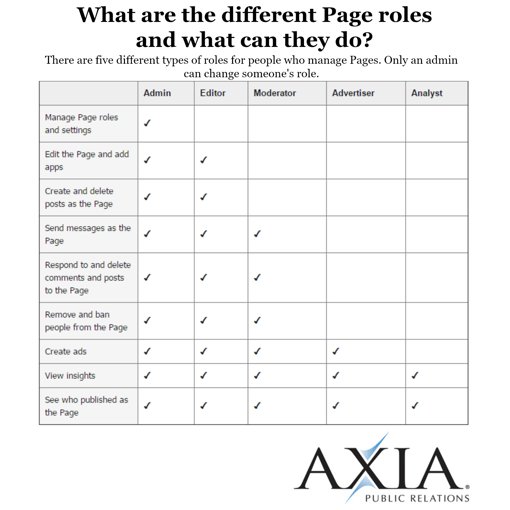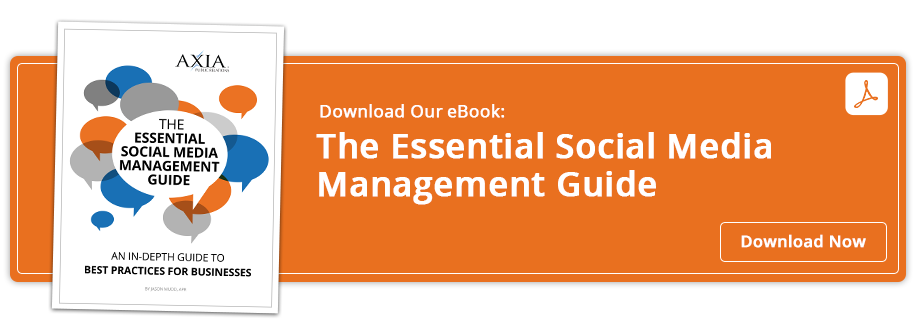 What are the different types of roles for Page managers and who should be assigned which role?
What are the different types of roles for Page managers and who should be assigned which role?
Facebook enables businesses to have multiple people act as managers of their Pages. This is convenient, but it also poses a security risk. If an employee no longer works for the company, but still has complete access to its Facebook Page, trouble could ensue. That’s why it’s important to understand the different types of roles for Page managers and to restrict who has all-access to the Page and whose access is limited.
Here is a list of each type of Page role and what each role is permitted to do on the Facebook Page, beginning with the roles that have the most control and accessibility.

1. Admin
The admin has the most authority and access of all the Page manager roles. An admin can manage and assign all other Page roles and settings, so for security purposes, it’s vital that businesses strictly limit who has this role. An admin can also do anything any other role can do, including:
-
Edit the page and add apps
-
Create and delete posts
-
Send messages via the Page
-
Respond to and delete comments and posts to the Page
-
Remove and ban people from the Page
-
Create ads
-
View Page Insights (analytics about the Page)
-
See who published as the Page
2. Editor
An editor role is great for employees who create content for the business’s Facebook Page and manage day-to-day activities. The editor has all of the access of an admin, except for assigning Page roles and managing settings.
3. Moderator
The moderator is a role best fit for an employee who handles customer service for a business. A moderator can answer questions and respond to comments, but cannot create content for the Page. A moderator can also remove and ban people from the page, create ads and view Page Insights.
4. Advertiser
The advertiser role is set up for anyone who creates ads for the Page. This role also has permission to view Page Insights.
5. Analyst
An analyst has the least amount of control and access of all the Page roles and can only view Facebook Page Insights. An employee who works with content strategy and planning might be given the analyst role.
As a Facebook Page owner, it’s important to maintain complete control of your Page and to limit who else has access. However, businesses can certainly benefit from having multiple people perform different duties to maintain and update the Page regularly.
Social media has become an integral component to a successful business. Axia Public Relations has the experience and tools to help businesses engage their customers effectively through social media. Learn more about how Axia can help you increase your productivity and profitability by downloading their e-book The Essential Social Media Management Guide or by contacting us today.
Featured image credit: <a href="http://www.123rf.com/#
Topics: public relations, inbound marketing, shared media


Comment on This Article